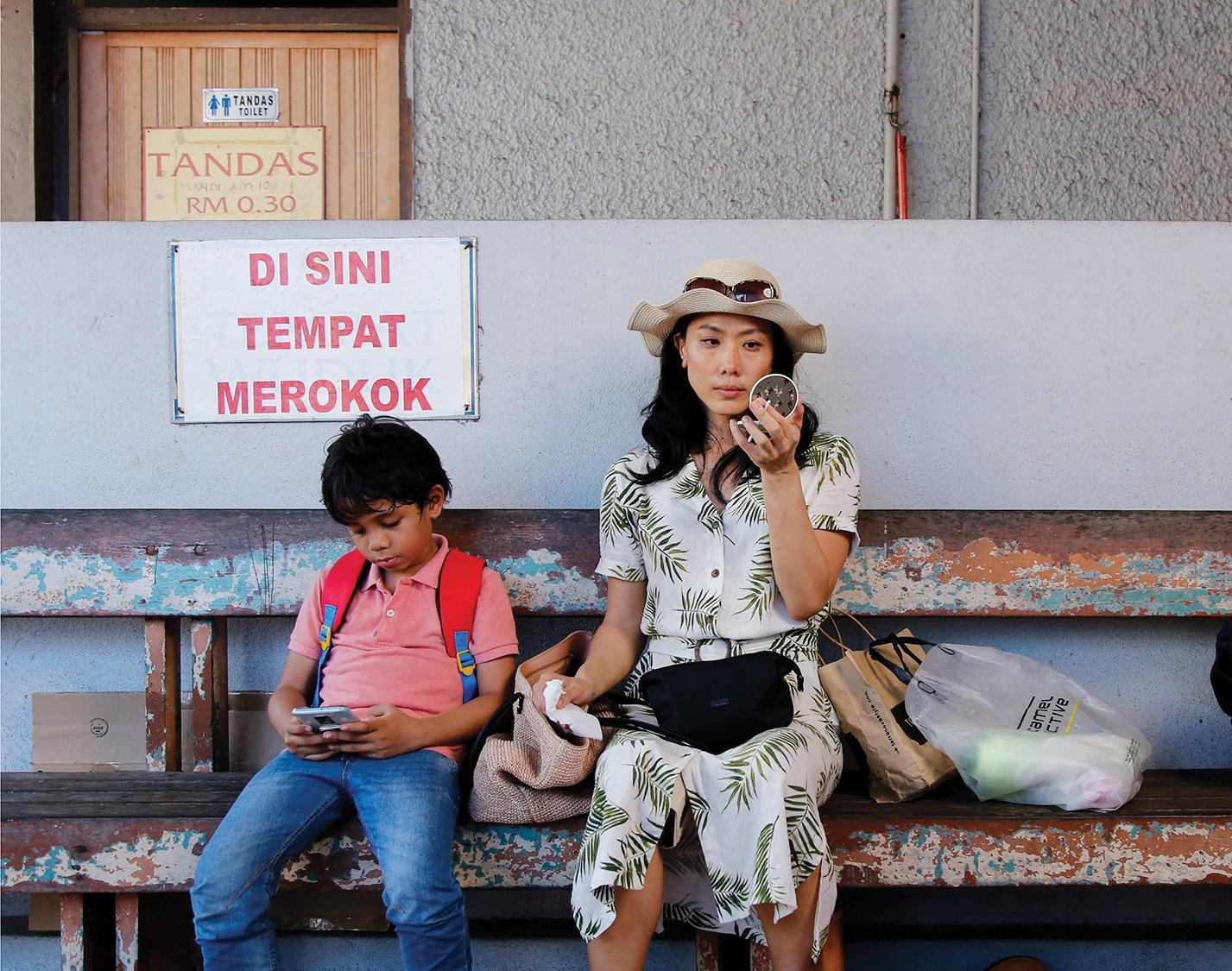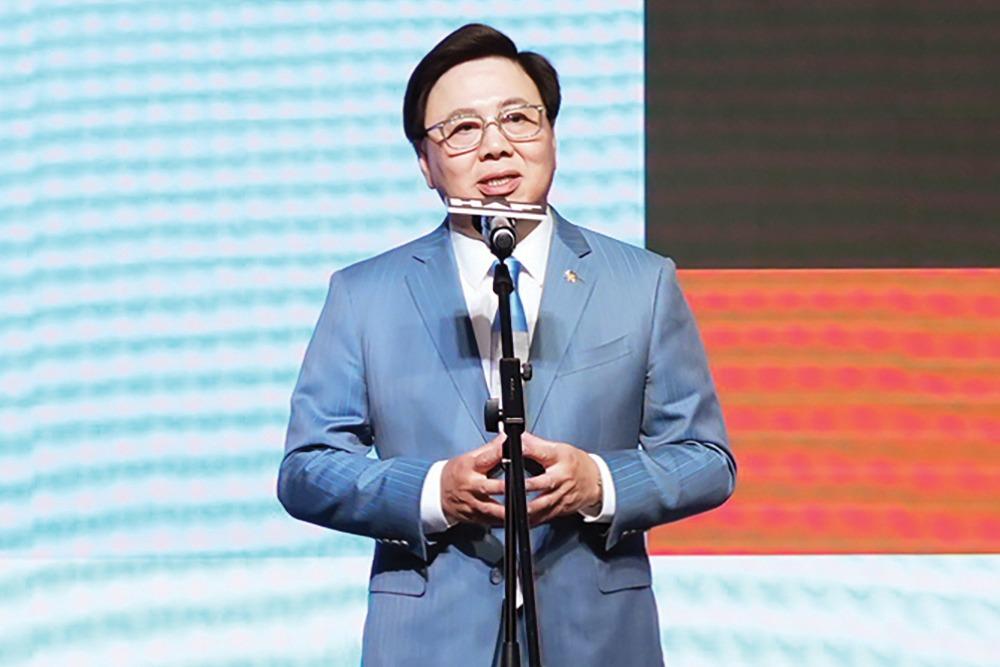Hong Kong filmmakers are benefiting from pan-Asian collaboration including synergies with their Thai counterparts. Mathew Scott reports.
 An Asian coproduction supported by the Hong Kong-Asia Film Financing Forum, Barbarian Invasion, went on to win the Jury Grand Prix at the Shanghai International Film Festival. (PHOTO PROVIDED TO CHINA DAILY)
An Asian coproduction supported by the Hong Kong-Asia Film Financing Forum, Barbarian Invasion, went on to win the Jury Grand Prix at the Shanghai International Film Festival. (PHOTO PROVIDED TO CHINA DAILY)
The wholesome Thai coming-of-age drama You & Me & Me has been met with a warm reception wherever it has screened.
Starring first-timer Thitiya Jirapornsilp in the dual roles of twin sisters You and Me, it’s a film that feels uniquely “Thai” — given the bucolic settings quite wonderfully framed by cinematographer Kritsada Nakagate — but it also taps into issues of youth that can resonate with audiences anywhere, such as dealing with first love and the looming shadow of adulthood. The fact that it has struck a chord globally is reflected in the fact that — as well as picking up nominations at film festivals in Osaka, the Italian city of Udine, and Beijing — You & Me & Me was in May among the top 10 non-English-language films being screened globally by the streaming giant Netflix.
Little wonder then that the film was chosen as part of a recent traveling Sawasdee Cinematheque program of Thai films. Cohosted by the Royal Thai Consulate-General, Hong Kong, and Macao’s Cinematheque Passion art-house cinema, the program was run over a weekend in June, and was aimed at fostering filmmaking collaboration between Thailand, Hong Kong, Macao and the Chinese mainland.
 The Thai coming-of-age drama You & Me & Me sees 18-year-old model Thitiya Jirapornsilp, in her film debut, starring in the dual roles of twin sisters. GBA briefs
(PHOTO PROVIDED TO CHINA DAILY)
The Thai coming-of-age drama You & Me & Me sees 18-year-old model Thitiya Jirapornsilp, in her film debut, starring in the dual roles of twin sisters. GBA briefs
(PHOTO PROVIDED TO CHINA DAILY)
For Thailand, the push has a twofold purpose. Screening Thai films in other countries can promote the kingdom as a tourist destination, and coproductions with the film industries in cities such as Hong Kong can bring in much-needed funds as well as opportunities to share moviemaking expertise.
“Soft power is very important now,” explains Chaturont Chaiyakam, Hong Kong’s Thai consul general. “And we think that film is one of the elements that Thailand can use to promote itself to a worldwide audience, alongside food, (cultural) festivals, (Muay Thai) fighting and fashion.
“What we’re also trying to do in Hong Kong is to cooperate with local producers and agencies, and bring Thai people and productions here to be introduced to Hong Kong, and learn from Hong Kong and each other. A film like You & Me & Me shows that audiences are the same everywhere — so maybe we should all work together more.”
 This past May, You & Me & Me hit the big time as one of Netflix’s 10 most-watched non-English-language films. (PHOTO PROVIDED TO CHINA DAILY)
This past May, You & Me & Me hit the big time as one of Netflix’s 10 most-watched non-English-language films. (PHOTO PROVIDED TO CHINA DAILY)
Fund facts
The Thai push comes at a time when the Hong Kong government has just closed off the first round of applications for its new Hong Kong-Asian Film Collaboration Funding Scheme, launched in February with the stated aim of providing funding for Hong Kong and Asian coproductions.
Each approved project will receive a grant of up to HK$9 million ($1.15 million), as part of the four strategic directions being followed by the city’s Film Development Fund, listed as nurturing talent, enhancing local production, expanding markets and building audiences. “In-depth exchanges between Asian and Hong Kong filmmakers” are being encouraged with the hope that they can “produce high-quality films, and enhance the diversity of Hong Kong cinema”.
“Since the launch of the Hong Kong-Asian Film Collaboration Funding Scheme, we’ve received a unanimous positive response from the industry,” says Wilfred Wong, chairman of the Hong Kong Film Development Council. “Many established and famous filmmakers and film companies have indicated their interest. I’m confident that collaboration between Asian and Hong Kong filmmakers can widen their vision and inspire their creativity, increasing the diversity of Hong Kong films.”
The pursuit of coproductions has been a long-term project for the Hong Kong film industry, pushed along by initiatives such as the 23-year-old Hong Kong-Asia Film Financing Forum (HAF). Each March, HAF provides a three-day platform where filmmakers from the region — and beyond — can gather to discuss projects, while offering awards to works in progress that include cash prizes to help fledgling projects along. Among its notable recent successes has been the genre-defying Barbarian Invasion (2021). Directed by a Malaysian (Tan Chui Mui), but produced in Malaysia, Hong Kong and the Philippines, the picture won the Jury Grand Prix at the Shanghai International Film Festival, China’s largest cinema event.
 Wilfred Wong, chairman of the Hong Kong Film Development Council, has welcomed the launch of local film funding programs supporting Asian coproductions. (PHOTO PROVIDED TO CHINA DAILY)
Wilfred Wong, chairman of the Hong Kong Film Development Council, has welcomed the launch of local film funding programs supporting Asian coproductions. (PHOTO PROVIDED TO CHINA DAILY)
Thais that bind
While over its long history, Hong Kong cinema has always welcomed international opportunities — the massive Shaw Brothers operation had studios across the region as far back as the 1930s — coproductions really became government policy following the local industry’s fall in fortune coming out of the heady days of the mid-1980s to mid-’90s. Where once there were around 400 films a year produced in Hong Kong, by the end of the ’90s, the number had crashed to around 40 as audiences were lured away from seeing local films at the cinema by Hollywood blockbusters, video piracy, as well as the continued growth of alternative viewing platforms and entertainment options.
One of the earliest to see the advantages of coproduction was Peter Chan Ho-sun, who through his Applause Pictures, beginning in 2000, tapped into the pan-Asian market for partners, and had success backing the likes of the Hong Kong-born, Bangkok-based Pang brothers, Danny and Oxide, and their horror film trilogy, The Eye (2002-05).
 Thai filmmaker and screenwriter Banjong Pisanthanakun (pictured) has signed on to work with local director and producer Peter Chan Ho-sun’s Changin’ Pictures. (PHOTO PROVIDED TO CHINA DAILY)
Thai filmmaker and screenwriter Banjong Pisanthanakun (pictured) has signed on to work with local director and producer Peter Chan Ho-sun’s Changin’ Pictures. (PHOTO PROVIDED TO CHINA DAILY)
The lure for international partners is that Hong Kong has always known how to make commercial cinema — which is exactly what brought a delegation from the Thai Film Director Association to the Sawasdee Cinematheque event in Macao, and to various meet-and-greet sessions with filmmakers from the Guangdong-Hong Kong-Macao Greater Bay Area.
Among them was filmmaker Banjong Pisanthanakun, most famous for being behind the seminal Thai horror Shutter (2004), which was remade by Hollywood; but in town in his role as producer of You & Me & Me — and to talk business.
“You can see by the audience reaction to You & Me & Me that different markets can have the same taste,” he says. “I think there are increasing possibilities for us all to work together and learn from each other. With the rise of streaming platforms, there is a greater need for content — and a greater audience for it. I think we’ll see more and more coproductions as this is a way to make the most of these opportunities — and to share our talents so that we can reach a far greater audience.”
 Chaturont Chaiyakam, the consul general of Thailand in Hong Kong, believes film has a vital role to play in promoting his country to the world. (PHOTO PROVIDED TO CHINA DAILY)
Chaturont Chaiyakam, the consul general of Thailand in Hong Kong, believes film has a vital role to play in promoting his country to the world. (PHOTO PROVIDED TO CHINA DAILY)
Pisanthanakun has recently signed on to work with Chan’s latest production company, Changin’ Pictures. The focus there is on developing content for streaming series, and again on gathering creative forces from across the region to do it.
“I heard about the funding Hong Kong was offering,” says the Thai director. “It’s really interesting because of the money, for sure, but also because you get the chance to work with Hong Kong filmmakers. I think it can be the future for all of us.
“We can explore many genres, and each share our strengths. The easiest connection we can make right now would be through horror — because that’s something we’re both very good at making.”


